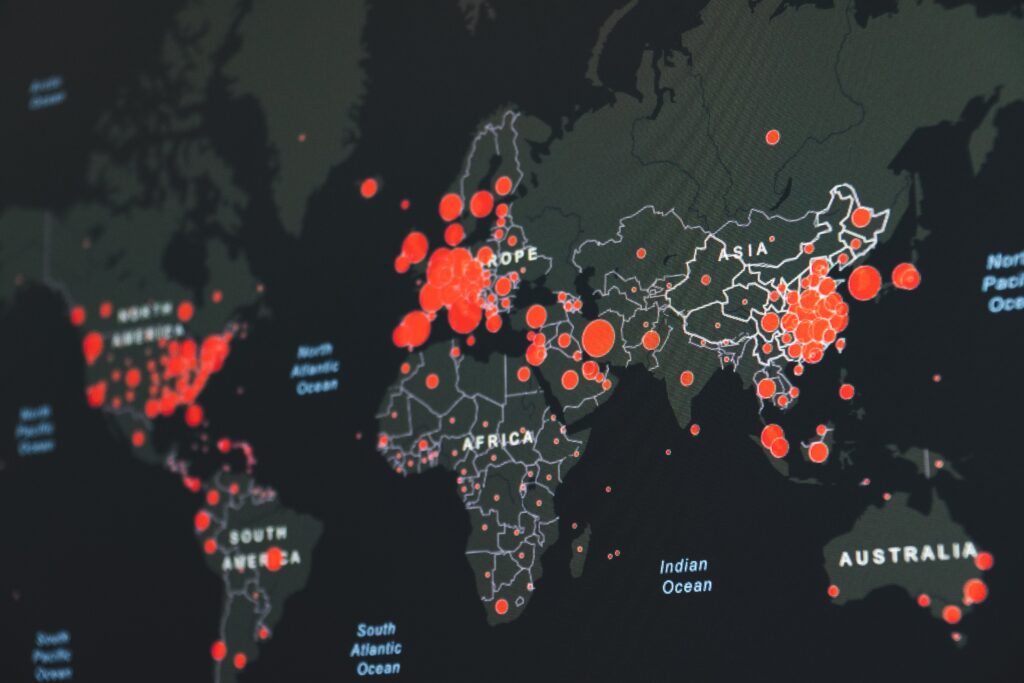The Finance of Modern Slavery: COVID-19 and Emerging Threats
As every industry and economy is impacted by COVID-19, so is the criminal economy. Human traffickers operate for profits. They exploit people in many ways, from forced prostitution to forced and child labour in industries across the world, defined as modern slavery. As the world locks down, these people are adapting and finding new nefarious ways to exploit others for their own gain. We are seeing evidence of this already, with soaring increases in online fraud, cybercrime, and scams to generate new proceeds where other forms of criminal income have diminished.
This changing criminal economy will be reflected in changing methods used by the traffickers who force people into modern slavery. For example, prior to COVID-19, much of the commercial sexual exploitation was primarily carried out in establishments such as bars, massage parlours, and nightclubs. Transactions were paid for in cash directly, rather than through banking systems. While still challenging to detect, there were a number of mitigating measures that could be put in place, and a risk-based approach could be applied to such establishments where this activity was known or suspected to take place. The changing nature of the commercial sexual economy means that such risk has shifted, and so new threats may emerge and previous risk profiles may become out of date. As exploitation methods shift, so may methods to launder funds and move cash proceeds of criminal activities.

Moving Exploitation Online
It is too early to truly understand the extent of the impact that this crisis has had on the commercial sex world, but we are expecting to see increases in online commercial exploitation. A recent example of such online exploitation can be seen in a current case that has shocked South Korea, referred to as the Nth Room case. This case revolved around the online sexual exploitation of women and girls on the Telegram messaging app. People from all over the world were able to make payments to access the Telegram chatrooms and make requests for the women and girls involved to provide explicit material and carry out violent acts upon themselves. These transactions involved a combination of cryptocurrencies and funds processed through legitimate fiat bank accounts. The women and girls were coerced into this situation through blackmail and fear. Non-compliance could mean that their addresses would be posted online they were threatened with violence and exposure to their families and friends, and psychologically tortured by their traffickers.
The Nth Room case is sadly not an isolated incident – many of these online exploitation rings exist globally. As the spread of COVID-19 has stopped people being able to find their victims and buy services in the streets, we hypothesise that many more will turn to the internet to fuel their desires. Likewise, as the criminals involved start to see how easy it is to reap the rewards of online exploitation with such relatively low risk of identification and prosecution, we anticipate that this trend is set to increase into the future. The relationship between financial services providers and such online abuse has already resulted in scandals and fines involving major multinational financial corporations, particularly regarding the online exploitation of children. As this trend continues, we anticipate that more institutions will be impacted if they do not properly mitigate against these risks.
Challenges in AML and Modern Slavery
There are a number of immediate effects of the virus on the ability of financial services providers to conduct their usual anti-money laundering (AML) regimes and safeguarding practices. In many countries, social lockdowns mean that it is physically impossible to carry out routine customer visits and conduct in-person AML checks. Visiting a customer premises usually allows a banking relationship manager to better gauge whether the nature of the customers’ business in reality reflects their stated purpose and nature of their bank account. Without being able to see the business in operation first-hand, there is a greater chance for illicit activity to go undetected, and for accounts used for money laundering purposes to thrive without outside scrutiny. Likewise, without being able to witness customers and interact with them in branches, some key behavioural indicators for suspicious activity will also not be detected, as financial service professionals must rely on remote means to identify illicit behaviour.

Impacts on Investigations
There have already been anecdotal reports of impact on the ability to properly escalate suspicious behaviour and therefore investigate and combat criminal activity such as human trafficking and modern slavery. In the finance world, suspicious behaviour is reported from within a bank to law enforcement using a reporting mechanism. The Financial Intelligence Units and related law enforcement bodies that are responsible for processing and responding to Suspicious Activity Reports (SARs) are in many cases operating at a reduced capacity, and backlogs of SARs to process are further building.
The impact of this is clear: without the ability to properly mitigate suspicious activity, criminal behaviour will be allowed to continue for longer than usual, and the criminals themselves will remain unprosecuted. Likewise, without proper escalations and investigations taking place, victims will continue to suffer undetected and more will fall into the trap of modern slavery.
Industries in Crisis
The wider economic ramifications of COVID-19 are yet to be fully understood. However, we are already seeing an increase in people falling below poverty lines in many countries across the world. Many workers who rely on their daily wage suddenly find their income has completely stopped as lockdowns came into force. These workers can be found across industries, from factories and agriculture, to construction and domestic work. Many of these people are migrant workers, who may have travelled across borders in order to find work and rely heavily on their income to support their families at home.
One of the key drivers of modern slavery is debt, as it is used as a means to control victims and essentially coerce them into working for little or no pay for a period of time. Many of these migrant workers will have taken on substantial debts in order to pay the fees required to secure their jobs. When their income stops, they are suddenly significantly more vulnerable to the lure of unregulated financial products, loan sharks, and taking on dangerously high-interest loans in order to keep afloat. When people are financially vulnerable in this way, they are much easier targets for exploitation, abuse, and forced labour.
This is an area of concern for financial services providers, as they may find their bank accounts being used to process these so-called loan payments. They may find themselves inadvertently handling illegal or exploitative funding. Financial institutions may also find their commercial clients’ supply chains changing and risk profiles shifting in these uncertain times. For example, where forced-labour risk for a particular client’s factory may have been relatively low before, changing circumstances and increased desperation within industries and workforces may alter this risk level, and financial institutions must be prepared for this.
Author – Phoebe Ewen

